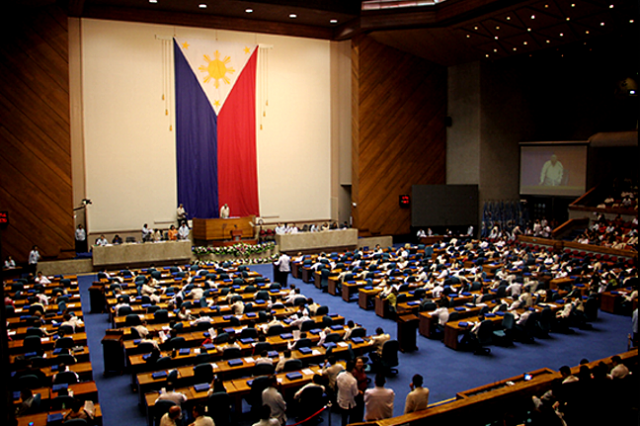MANILA, Philippines – The House of Representatives on Monday approved the divorce bill on third and final reading, on a 134-57 vote, with two abstentions.
Presidential Spokesman Harry Roque said President Rodrigo Duterte was not supportive of the bill, which seeks to institutionalize absolute divorce and dissolution of marriage in the country.
It declares that the State must give opportunity to spouses in irremediably failed marriages to secure absolute divorce under limited grounds, as well as judicial procedures to end dysfunction of a long-broken marriage.
Among the grounds for an absolute divorce are:
*When the spouses have been separated in fact for at least 5 years at the time of the petition for absolute divorce is filed.
*Existing grounds for legal separation under Article 55 of the Family Code of the Philippines.
*Existing grounds for annulment of marriage under Article 45 of the Family Code of the Philippines.
*When one of the spouses has undergone sexual reassignment surgery.
*Psychological incapacity of either spouse.
*Irreconcilable marital differences and conflicts which have resulted in the total breakdown of the marriage
Under the bill, a petition for absolute divorce or dissolution of marriage shall be filed in the proper court by the interested party or parties within five years of the accrual or cause of action.
Another section added to the bill provides for the finality of the decision or decree. Except for decisions or decrees in summary proceedings, it shall immediately be executory, barring an appeal to the Court of Appeals.
The bill provides that petitioners seeking divorce are ensured inexpensive and affordable court proceedings in securing an absolute divorce decree.
Overseas foreign workers shall be given priority with respect to court hearings. The court shall set the reception of evidence, upon availability of the petitioners, for not more than two consecutive days.
Summary judicial proceedings, or the expeditious manner of resolving a divorce petition without regard to technical rules, are also provided for under the bill. Petitioners may or may not be assisted by a lawyer in summary judicial proceedings, and the proper court may allow presentation of evidence ex parte, as needed.
Grounds under summary judicial proceedings include when one of the spouses has contracted a bigamous marriage or has been sentence to imprisonment for six years, among others.
Except for grounds under summary judicial proceedings, the court shall start trial only after a six-month cooling-off period after the filing of petition. During this time, the court shall exercise all efforts to reunite and reconcile the parties and the court shall await the submission of the report of the public prosecutor.
The mandatory cooling-off period shall not apply in cases, which involve acts of violence against women and/or children of the petitioner, under the Anti-Violence Against Women and Their Children Act of 2004. Neither shall it apply in cases involving an attempt against the life of the other spouse, a common child, or a child of the petitioner.
If the petitioners agree to reconcile, the court shall recognize the reconciliation through a joint manifestation under oath duly signed by the petitioners and submitted to the same court where the divorce petition was filed.
The divorced spouses shall have the right to marry again with custody of minor children to be decided by the court accordance with the best interests of the children.
Conjugal partnership of gains, excluding exclusive properties of either spouse, shall be dissolved and liquidated. The assets shall be equally divided between the spouses.










